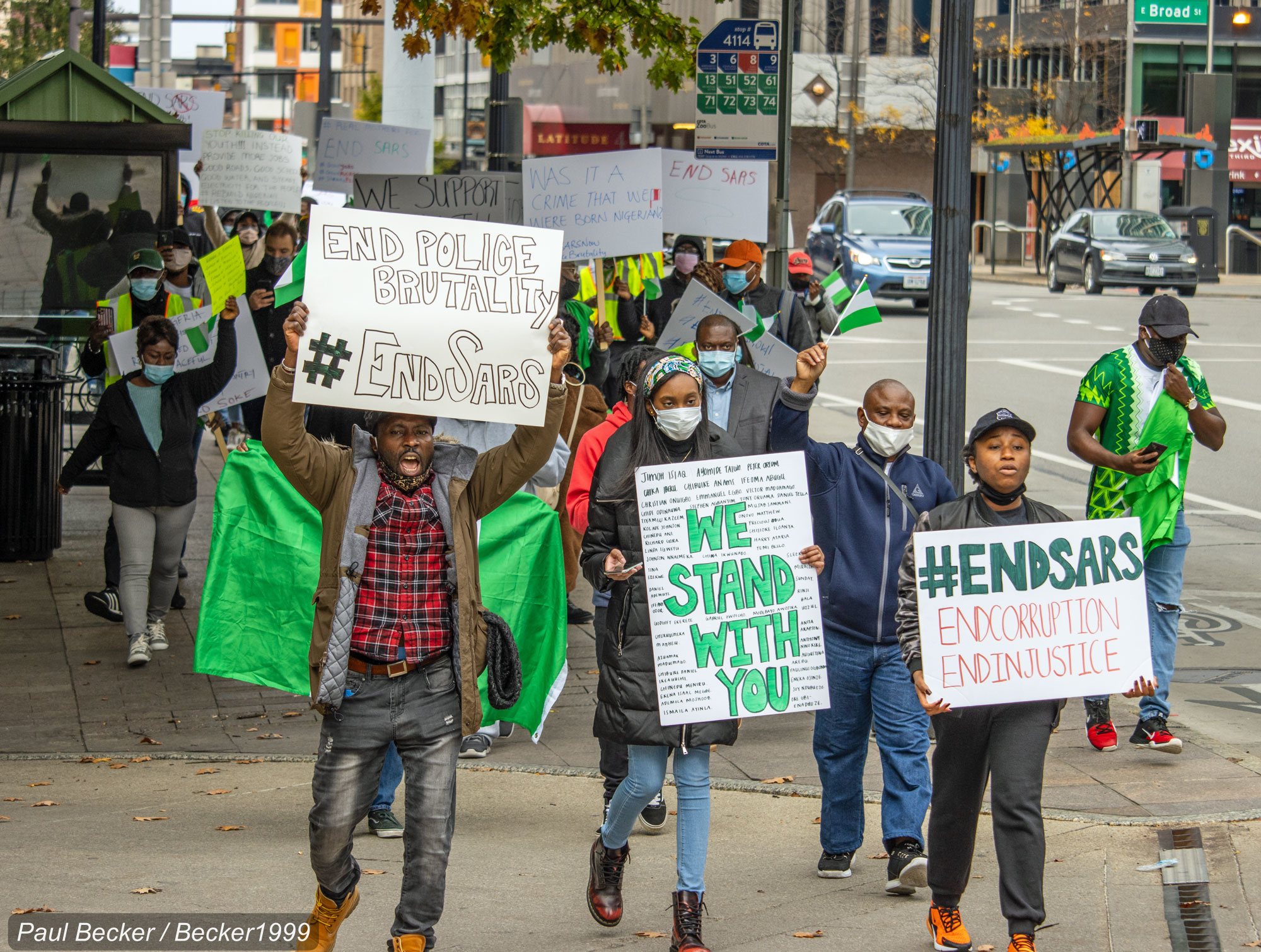On October 20, members of the Nigerian Armed Forces fired into a group of unarmed youth protesting police brutality at the Lekki Toll Gate, killing at least 12. Over the past month, members of the Nigerian community and allies have participated in protests across Canada’s major cities, calling for an end to the Special Anti-Robbery Squad (SARS) police unit and justice for their victims. This special branch of Nigeria’s police has been found guilty of police brutality, torture, and inhumane treatment.
“The York community is deeply saddened by the violence that has been occurring across Nigeria in recent weeks in connection with the EndSARS movement,” said President Rhonda L. Lenton in an October 28 statement. “We are particularly devastated by the tragic events of October 20, when police and military forces fired into a crowd of unarmed young people who had gathered to protest police brutality.”
The Nigerian Students Association (NSA) at York has been participating in peaceful protests since early October. Protests were held in major cities across Canada, including Toronto, Ottawa, Vancouver.
“NSA YorkU is advocating for the disbandment of SARS and overall government reform in Nigeria,” says Abiola Awotide, president of the NSA and third-year sociology student. “The problem is not just SARS, it is deeply rooted corruption and that is what we are really fighting against. SARS is just a tiny section of the overall issues.”
Between 2017 and 2020, Amnesty International reported 82 cases of police brutality in Nigeria. They stated in their report that SARS detainees were subjected to treatment including “severe beating, hanging, starvation, shooting in the legs, mock executions and threats of execution.”
Current protests were kindled by an alleged shooting by SARS that was captured on video at the beginning of October. Nigeria’s police responded to initial protests with force, resulting in several deaths.
“It came as a shock to a lot of Nigerians, and that shock affected a lot of people’s mental health. A lot of our members mentioned not being able to write midterms and turn in school work due to the happenings. A lot of people feared for the safety of their families. It was definitely a very traumatic experience.”
After protests continued to escalate, police said they would immediately disband SARS on October 11. However, those on the ground say little has changed. The worry that the new police team created specifically to replace SARS, called Special Weapons and Tactics (SWAT), will be the same problem under a new name. Thus, protests have continued.
On the evening of October 20, members of the Nigerian Armed forces fired into a crowd of peaceful protestors, reportedly killing 12 or more civilians.
This tragedy has had a profound impact on the Nigerian community worldwide.
“The Lekki massacre of October 20, 2020, was definitely a big one for Nigerians at home and Nigerians in the diaspora,” says Awotide. “It came as a shock to a lot of Nigerians, and that shock affected a lot of people’s mental health. A lot of our members mentioned not being able to write midterms and turn in school work due to the happenings. A lot of people feared for the safety of their families. It was definitely a very traumatic experience.”
In the wake of the Lekki massacre, Lenton expressed condolences on behalf of the university. Her statement also provided links to mental health resources, and expressed support for the activists’ ongoing efforts.
“At York, we recognize and applaud the meaningful work being done by the young people in Nigeria and others to protect the safety of all individuals, and in particular, those of underrepresented groups,” Lenton said.
Despite the lasting repercussions of this tragedy, Awotide expresses the NSA’s continued hope for change and faith in the efforts of Nigerian youth. “This movement means everything, it means a revolution for change from the Nigerian youth, it means breaking away from a corrupt and stagnant Nigeria, it means an action towards a better, beautiful progressing nation.”


